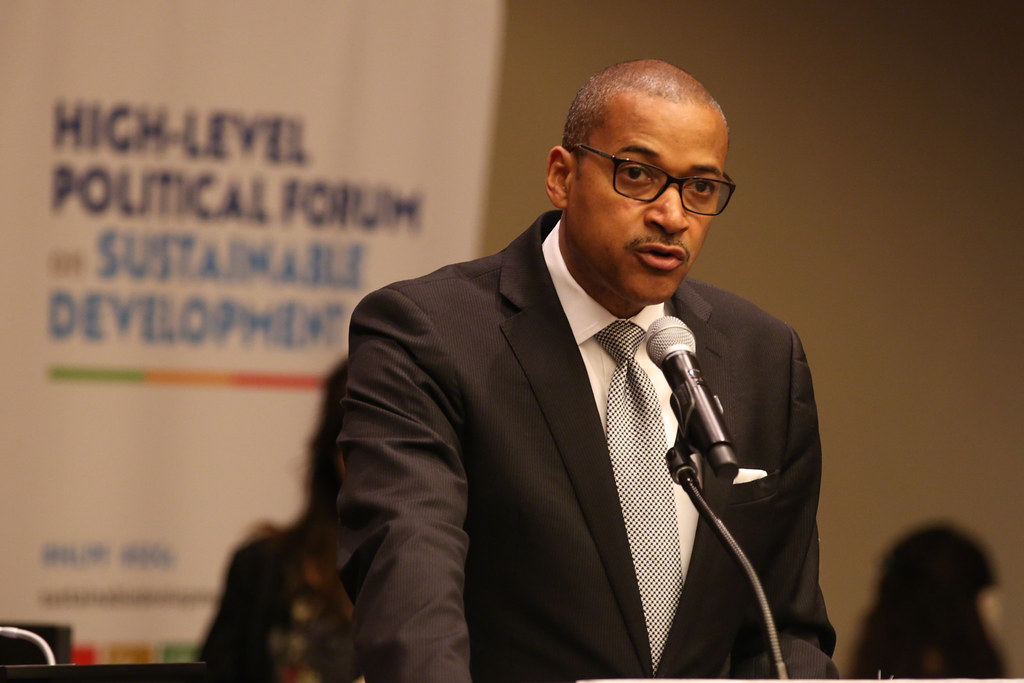UN unveils new blueprint for LDCs
United Nations special envoy Courtenay Rattray has described the newly drafted programme of action for least developed countries (LDCs) as a symbol of solidarity with the world’s poorest people.
The UN High Representative for LDCs, including landlocked and small island nations, welcomed the draft Doha Programme of Action for LDCs due for adoption at the Fifth United Nations Conference on the LDCs (LDC5) in the Qatari capital.

The meeting, expected to be graced by President Lazarus Chakwera next month, has been postponed amid Covid-19 resurgence.
Rattray said the new dates would be announced by the UN General Assembly in January, but touted the approved new programme of action represents a milestone in preparatory works.
He stated: “I said when I became the high representative in July that we should not go to Doha with an open text and I am glad this was achieved.
“This was not an easy process.”
The LDCs had to accept considerable reductions to the ambitions outlined in the first draft, but Rattray said: “It is better to have a diamond with a flaw, than a pebble without.”
He was confident that the Doha Programme of Action will help the 2030 Agenda for Sustainable Development works in and for the LDCs.
“Now the hard work begins to turn symbolism into action. We must focus on implementation and the concrete deliverables that will ensure the world’s ambitions for the LDCs are met,” he said.
The Covid-19 pandemic has shown how rich and poor countries can work together to confront shared challenges.
“These last two years have shown us in glorious technicolour that this is no time for global solidarity to go on a holiday. And that’s why I talk about LDC5 not as a moment— but the start of a movement… for genuine and lasting change,” he said.
Rattray said the financing needs of LDCs have been growing, not least due to Covid-19, but also “a number of longstanding challenges” that must be overcome for the LDCs to have a fair chance of advance.
“ L e t ’ s s t a r t b y implementing our long-standing commitments now,” he stated. “We also need to ensure the world’s most vulnerable countries are finally able to access requisite amounts of Special Drawing Rights and have their debt burdens significantly reduced.”
According to Rattray, the LDCs need enhanced market access, more aid for trade and investment support though the world is not keeping pace with its promises to the LDCs.
He said: “I am not sure that any of us can be really confident that the international community’s support for LDCs is keeping pace with technology?
People in 46 LDCs, including Malawians and 32 other African countries, are hugely affected by climate change, high debt burden and Covid-19.
They require urgent action and assistance to vaccinate their populations, with just about 10 percent of their people receiving two doses of Covid-19 vaccines.
“Instead of heeding the UN’s call to vaccinate these 1.1 billion people, the world’s most vulnerable nations are being met with punishing restrictions and travel bans,” said Rattary. “This is the greatest test for the international community today. If we fail on this, future generations will rightly judge us.”
Speaking in February when Malawi hosted a virtual meeting for LDCs in February, Chakwera, who is the chairperson of these countries, called for global relief to bail the poor nations whose Gross Domestic Product (GDP) shrunk by 1.2 percent in 2020. He called for concerted efforts and people-centred solutions from the LDCs to progress into middle income nations by 2063.





